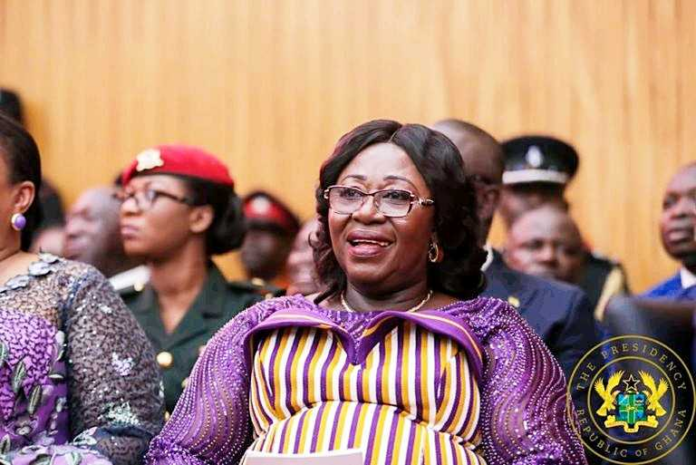The Chief of Staff, Akosua Frema Osei-Opare, has charged assemblies to partner with the local structures particularly, the urban, town, zonal, and area councils, the unit committees, and traditional authorities.
She says it is through these partnerships and collaborations that the ideals of local governance are optimized for the benefit of the people.
Madam Osei-Opare said this when she inaugurated the district assemblies in Suhum and Ayensuano in the Eastern Region, underscoring the significance of decentralisation and local governance in Ghana’s democratic landscape.
Speaking on behalf of President Nana Akufo-Addo on Monday (February 12), she congratulated all elected assembly and unit committee members for their success in the recent district level elections.
The chief of staff reiterated the government’s commitment to deepening decentralisation, as mandated by the constitution, emphasising the role of district assemblies in promoting popular participation in governance and decision-making at the local level.
With the inauguration of 259 district assemblies, Osei-Opare noted the progress made in decentralisation efforts since 1988. She said that the government is now closer to the people than ever before, thanks to the expanded network of district assemblies.

However, she acknowledged that despite decades of decentralisation efforts, there is still a tendency among citizens to look towards Accra for solutions to local issues. She urged assembly members to change this status quo by actively engaging with their constituents and delivering basic public services at the local level.
“The instinct of the average citizen is still to look towards Accra or their MPs for things that fall within the remit of the district assembly. I am expecting that you would be part of the team that finally changes the status quo and deepen local governance and decentralisation to enable the citizens have access to basic public services in their districts rather than demanding for such services from Accra,” she said.
Osei-Opare called for continuous capacity building and sensitisation efforts to deepen understanding of decentralisation and local governance among citizens. She stressed the importance of building strong partnerships and collaborations with local structures, including urban, town, and area councils, to optimise the benefits of local governance.
“You should also establish strong partnerships and collaborate with the local structures particularly, the urban, town, zonal and area council, the unit committees and traditional authorities as well as other identifiable groups to facilitate the work of the District Assembly. It is through these partnerships and collaborations that the ideals of local governance are optimized for the benefit of the people,” she said.
The chief of staff highlighted the government’s focus on improving the mobilisation of internally generated funds (IGFs) for district development. She urged assembly members to work together to create innovative ways of mobilising resources within their areas.
Osei-Opare reminded assembly members of their critical role in advancing the government’s development agenda, particularly the Coordinated Programme of Economic and Social Development Policies (2022-2025). She stressed on the need for alignment with national and sectoral policies to ensure effective implementation of local projects and programs.
Furthermore, she addressed leadership challenges at the district level, noting the importance of maintaining close contact with electoral areas and consulting constituents on development issues. She highlighted efforts to address resource constraints and announced upcoming orientation and training programmes to enhance assembly members’ competence.
By Laud Nartey









